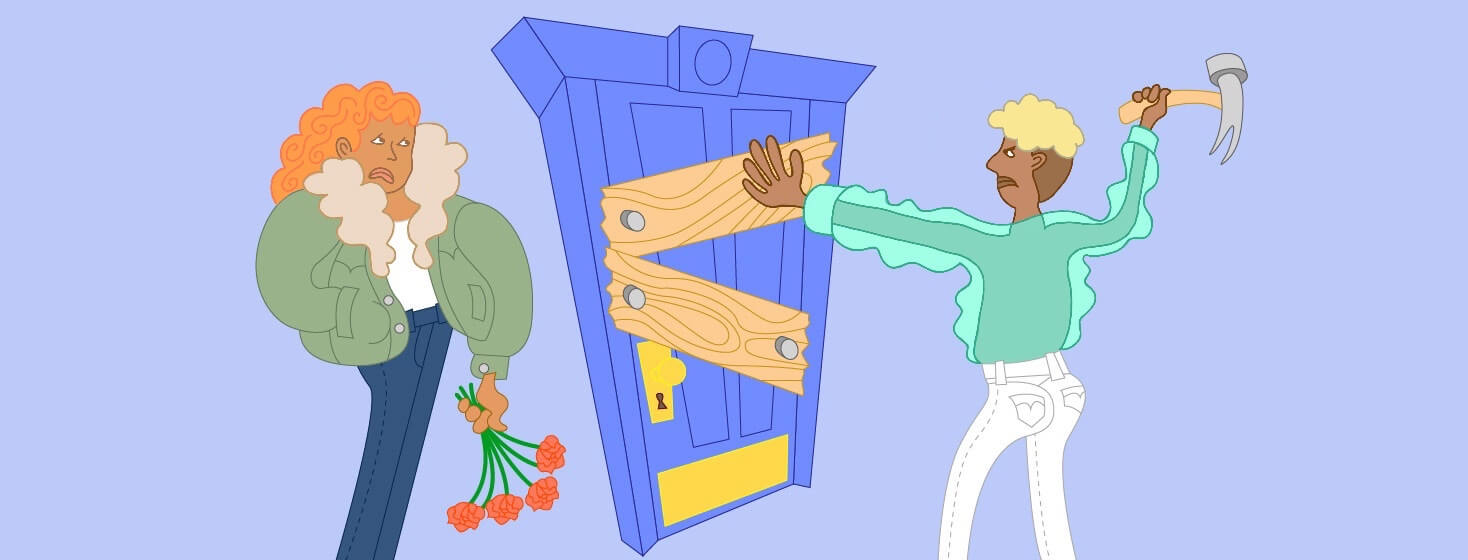Dating With an Invisible Illness
The other day I was speaking to a dear friend and we found ourselves digging up the "Ex files," thinking of love lost and love won. As we reflected on the mistakes we made, I remembered the first true heartbreak I ever experienced in my early 20s. One that involved an abrupt ending, without any form of closure, all because I withheld my sickle cell diagnosis.
Choosing to tell this story is quite hard because my heart and self-worth never truly recovered from the hurt it caused but I'm revisiting trauma so others can learn from my lived experience.
The meet-cute
This encounter took place in the Spring of 2008, I was introduced to a young man through a mutual friend and after months of getting to know each other, we decided it was time to meet up. At the time, I lived in Texas and he lived in Washington DC but we didn't mind the distance; we had fallen "in like" or so I thought. Coincidentally, a few of my close friends attended colleges in the DMV area so we decided Spring break was the perfect time to schedule the trip.
After picking me up from the airport, we had dinner and made our way to his family's suburban home. By 'we', I mean the guy, our mutual friend, and myself; dinner for 3 was a lot less nerve-wracking than dinner for 2. Shortly after arriving, I sensed the early onset of a vaso-occlusive sickle cell crisis coming on with my chest tightening up and my joints feeling achy.
I started to panic because I knew the change in altitude on commercial flights had always been a pain trigger for me. I excused myself, immediately went to the bathroom, took my pain medications, and sat on the floor hoping for relief.
Secret's out
Sickle cell disease can be unpredictable because by 2 am, the pain had gotten progressively worse and I was too afraid to wake him up. I called my girlfriend who just happened to live in the area and she took me to the closest ER where I was treated. While in the hospital, my girlfriend concocted an elaborate lie and for a moment, we both thought we could get away with murder.
Later that morning, I returned to his home and found my belongings at the door. Through a childish game of telephone, a mutual friend shared my diagnosis before I got a chance to tell my story, on my own terms. In the most callous way, he asked me to leave and told me that he never wanted to see me again. His exact words were "I never want to be seen with a girl who's dying so take your sickly self elsewhere."
Feeling dejected, I went to my girlfriend's apartment to mend my broken heart and nurse my body back to health. "What a wasted trip," I thought. Some days later, I got on a plane and headed back to school. As they say, hindsight is 20/20 because I am so grateful that I had somewhere to land after such a devastating turn of events.
The aftermath
It took me months to rebuild what was broken but something at my core forever changed and that was the way I saw myself. For a while, my heart was broken but it led to a soul awakening of sorts. As I started to assess the damage the incident had incurred, I started to recognize how loved I was. His actions were horrid and our mutual friends saw him for exactly who he was: ungodly.
I sat with my soul and gained so much clarity on the type of woman I am. I didn't act out, smash his windows, or beg for forgiveness. I walked away with my head held high because this blood disease was genetically passed on and although it has dictated some aspects of my life, it has never defined me.
Sickle cell is the rock on which I've built my perfectly imperfect life and it inspires some of my favorite character traits to date which are compassion, empathy, and kindness. In time, I would have shared my health diagnosis when the trust was attained and vulnerability was welcomed.
Final thoughts
One question that I'm often asked is, "When do you tell a potential partner about your chronic illness?" and my answer will always be when you are ready. I agree that hiding an integral part of yourself can feel like deceit but choosing to ambush a stranger and disclose private information about your health, especially on a first date is not ideal either.
It is important to establish the type of relationship you both want and then outline your expectations for the relationship. If you are casually dating then there isn't a sense of urgency but if you are pursuing something long-term, then it's important to keep things honest early on, especially if your symptoms could impact the time you spend together.

Join the conversation